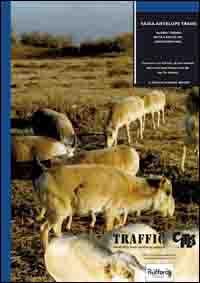The aim of this project, which was commissioned by the CITES Secretariat, was to compile up-to-date information on current trade in Saiga products and derivatives, focusing on some key areas. These key areas included analysis of global trade in Saiga parts and derivatives, undertaking market research in Malaysia and Singapore, compiling information on the population status, levels of poaching and trade in Kazakhstan, the Russian Federation and Uzbekistan, and providing information on the availability and management of stockpiles of Saiga parts in some important consumer States, such as China. More general information on the demand, availability and recent trade trends in Saiga horns in China has been recently compiled by the Wildlife Conservation Society on behalf of the CITES Secretariat. The information used in this report was compiled from literature references and interviews with Saiga Antelope experts and government officials, market surveys in Malaysia and Singapore, and an analysis of global trade figures for Saiga parts and derivatives, as recorded in the CITES trade database.


